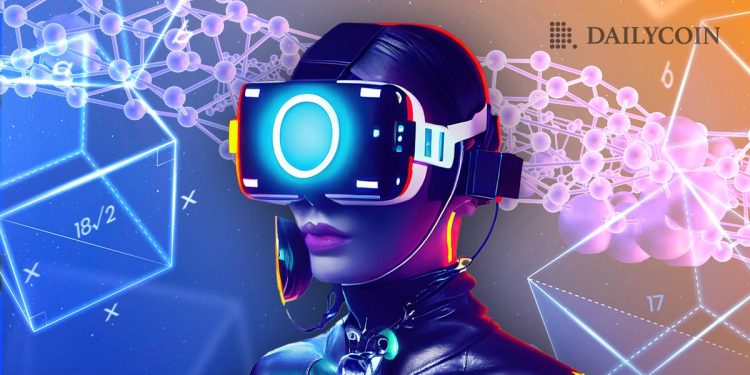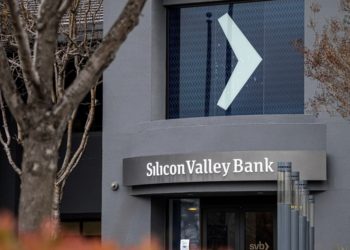Blockchain is, by definition, disruptive. Blockchain technology’s important rationale is that it disrupts previous systems and provides better alternatives. And that’s precisely what blockchain researchers are attempting to do in academia.
In recent years, the growth of the blockchain ecosystem has created ample opportunities for it to change our world. Now, universities are using blockchain technology to keep records — and that is just the beginning. In this article, we’ll be exploring how blockchain is changing the world of academia and how it could change it further.
But first, an introduction to the relationship between blockchains and academia.
Blockchain and Academia


The first blockchain was built for Bitcoin and could only be used to send and receive currency. Smart contracts could not be built on it, and it was essentially a device for processing payments.
But that soon changed with the building of Ethereum. The Ethereum protocol expanded blockchains from mere payment processors to anything processors. That’s why the world has seen an extraordinary increase in the number of products built on blockchains.
There are now gaming apps, finance apps, NFTs, and even metaverse products — all being built on the blockchain. And there’s no reason blockchain’s reach cannot expand to academia. There’s evidence that that expansion has already begun.
In 2017, Central New México Community College became the first university to issue student-owned digital diplomas through blockchains. MIT and the Georgia Institute of Technology already accept Bitcoins on campus. MIT also developed Blockcerts, an application that can write, verify, create and issue blockchain-based certificates.
Blockchain Could Change How Records Are Kept
Record keeping is the one thing distributed systems like blockchain does better than any other method. Distributed ledgers ensure redundancies all over the system, which means the system can never be hacked or changed.
Record keeping in academia is difficult since these records are essentially endless. The verification process is also quite tedious, as academics must spend long hours poring over them to ensure everything is in order.
If blockchain is introduced to university record-keeping processes, that process will be transformed.
For one, it could put credentials under the control of students as they will have the power to retrieve their records themselves. They would be able to verify their identity on the system without the aid of an intermediary. Therefore, even if the institution loses its records, these necessary credentials will not be lost either.
Blockchain technology could also be used for accreditation purposes. Today, accreditation of institutions is a burden in many countries, and a distributed ledger can help streamline that process. For example, regulatory agencies can easily verify the quality of institutions via their records. It can also easily verify the educational credentials of the teachers employed at that institution.
Perhaps the most important benefit of the blockchain is that it could be instrumental in solving intellectual property problems. If institutions keep their records on a blockchain, it would be rather easy to check if an invention or idea is unique enough to be registered as intellectual property.
While centralized networks like Researchgate help with this, they still aren’t as efficient as a blockchain could be. Asides from that, they still carry the inherent disadvantages of a centralized system.
Lastly, blockchain solutions can record all of one’s educational achievements throughout a lifetime. The blockchain would act as a verifiable lifetime record and significantly reduce résumé fraud.
Blockchain có thể dân chủ hóa tài trợ học thuật


One big problem that researchers face in today’s world is how to get funding and grants. Researchers today have to jump through several hoops to get project funding. The grants they use for their projects are often tied to associations that may have political interests. Hence, these associations and authorities only give grants to researchers pursuing ideologically motivated or beneficial research.
This sort of approach toward research hurts science. It means that researchers who carry out counterintuitive research will not get grants. And it also means that humanity will be unable to benefit from the mental labor of some of these researchers.
This is true even outside academia. The research and development teams of companies often focus on improving existing projects. Very few companies want to go out on a limb and fund disruptive technology research. That’s why disruptions are exceptions, not the norm.
Hence, we have a situation where public and private institutions would instead not fund disruptive research and tech. Public institutions wouldn’t fund them because they could be politically disadvantageous, and private institutions are usually wary of the financial risks involved.
However, blockchain technology can solve this problem quite easily. Academics could sell shares in their patents and the results of their research through tokens, and the public could easily buy into it and fund such projects. In many ways, it’s not different from what developers and founders do today.
The scientist could create a token on the blockchain, sell those tokens to members of the public who are interested in the results, and use funds to pursue the research in question. This would democratize the world of academic research and create a new crop of scientists who are beholden only to the public — not politics or profits.
Blockchain có thể làm cho thanh toán dễ dàng hơn
Distributed ledgers have promising applications for payment processing. For one, they are great tools for the unbanked and are seamless ways of making cross-border payments. If adequately applied to academia, these networks can make it easier for institutions and students to process payments.
Online schools, for example, wouldn’t have to bother with the issues surrounding cross-border payments. Payments can be processed through stablecoins. This will ensure that institutions will be more inclusive and still have a bigger capacity to educate.
Blockchain có thể giải quyết các vấn đề nhân sự trong Học viện
Academia, like every other field, has its HR headaches. For example, how do institutions ensure that they are hiring the very best person for the job? How do they constantly monitor performance?
These labor-intensive processes have led to a blow-up of administrative muscle in academic institutions worldwide. This is yet another problem that distributed ledger systems, if implemented properly, solve.
If credentials are stored on a public ledger, HR will find it easier to find the best person for a job and hire them. Ultimately, companies will save time and money by hiring the best candidates.
All of this would make it easier for HR departments everywhere to evaluate the professionalism and competence of certain people a lot faster. It will also eliminate the human bias that often arises from a bad personal relationship with one’s employer, as employers will no longer be able to amend an employee’s records retroactively.
Smart Contracts Can Solve Administrative Problems
If deployed correctly, smart contracts can solve a tonne of administrative problems. For example, exams, lessons, and other such resources could be encoded into smart contracts that are activated when certain conditions are met.
This way, students can learn at their own pace and will only be limited by transparent rules. Aside from that, the blockchain network could give universities more storage space.
While some institutions have enough resources to afford colossal storage space, this isn’t true for all of them. Institutions that can’t afford space can use the blockchain as a simple alternative.
On the Flipside
- While smart contracts can be beneficial in many administrative tasks at academic institutions, it’s not recommended to use smart contracts instead of proper contractual agreements with employees.
Why You Should Care
Blockchain technology may revolutionize how academics teach and research in the next few years. It could also change how students learn, and people interact with academia. That could change our world, as it would help us learn and research faster and perhaps more efficiently.



























